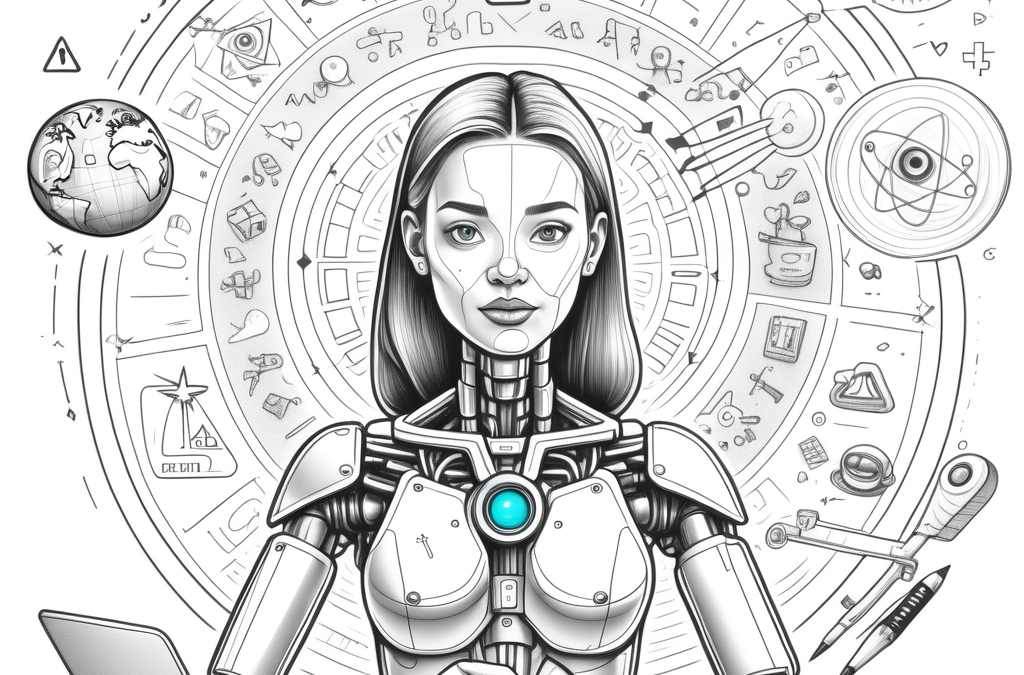Introduction: The Ethical Frontier of AI
Imagine a world where machines can think and act like humans. Sounds like science fiction, right? But as Artificial Intelligence (AI) becomes more intertwined with our daily lives, we face critical ethical questions about how to harness this powerful technology responsibly. The intersection of technology and ethics is where AI ethics comes into play—a set of guidelines that help us navigate the complex issues arising when machines make decisions.
Why Should You Care?
As young tech enthusiasts and future innovators, you hold a unique position to influence AI’s trajectory. Whether it’s through social media apps or self-driving cars, AI is embedded in countless aspects of our lives. Understanding AI ethics now means you can advocate for fair and responsible use of this technology.
Key Questions to Consider:
- How does an AI app treat your data?
- Does it respect your privacy?
- Is it unbiased in its decisions?
Engaging with these questions empowers you to promote fairness and accountability in AI development.
Diving Deep into Ethical Dilemmas in Artificial Intelligence
As we explore AI ethics, it’s crucial to examine real-world dilemmas that illustrate the ethical challenges of AI.
- Bias in AI Systems: AI algorithms can reflect biases present in their training data. For instance, there have been cases where hiring algorithms favored certain demographics, leading to unfair job rejections. This highlights the importance of designing AI systems that treat everyone equally.
- Privacy vs. Progress: AI has the potential to revolutionize fields like healthcare, offering personalized treatment plans. However, this raises concerns about how personal data is used. Balancing technological advancement with privacy protection is a challenge we cannot ignore.
- Responsibility in AI Development: When an AI makes a mistake, who is held accountable? Is it the developer, the user, or the AI itself? These questions are pivotal as AI technology continues to evolve.
Real-World Examples:
- Self-Driving Cars: An incident involving a self-driving car failing to recognize a person in a wheelchair resulted in a serious accident, highlighting the implications of AI’s decision-making capabilities.
- Facial Recognition Technology: Systems have been shown to misidentify individuals with darker skin tones, raising ethical concerns about bias in AI technologies.
How to Approach AI Ethics: Practical Steps for Students
Tackling AI ethics starts with education and engagement. Here are practical steps you can take:
- Educate Yourself: Explore online courses, TED talks, and articles focused on AI ethics. The more you learn, the better equipped you’ll be to address ethical challenges.
- Engage in Discussions: Initiate conversations with peers and teachers about ethical implications in AI. Challenge each other with various scenarios—how would you design an AI that is fair for everyone?
- Take Action: Be mindful of how you use AI in your daily life. Consider the data you share and its implications. Join local tech meetups or coding clubs that emphasize ethical AI practices.
- Voice Your Opinions: Share your thoughts on AI ethics. Your unique perspective can lead to innovative solutions to ethical dilemmas.
The Impact of AI on Society: Ethics in the Real World
AI’s impact on society is profound, influencing how we learn, work, and connect. The technology is not just about convenience; it holds the potential to tackle pressing global challenges.
Examples of Positive AI Impact:
- Healthcare Innovations: AI can assist doctors in diagnosing diseases earlier, potentially saving lives.
- Education Accessibility: AI can provide tailored learning experiences, making education more accessible to everyone.
Your Role in Ethical AI:
You have the power to lead the charge in promoting ethical AI. Young innovators are already making waves:
- Emma Yang created an app using AI to help people with Alzheimer’s recognize their family.
- Tanmay Bakshi, who began coding at five, teaches others about the ethical implications of AI.
These examples illustrate that you don’t need to be an adult to make a difference.
Conclusion: Championing Responsible AI for Tomorrow
The future of AI ethics rests in your hands. We’ve explored the challenges and responsibilities of AI, and now it’s time to turn that knowledge into action.
Key Takeaways:
- Understand the fundamentals of AI ethics.
- Engage in discussions and question the technologies you use.
- Advocate for responsible practices that prioritize fairness and privacy.
What’s Next?
Embrace ethics in every aspect of AI development and usage. Stay curious and challenge yourself to think critically about the AI you encounter daily. Your voice is essential in shaping a future where AI is a tool for good and serves everyone equitably.
By following these steps and remaining engaged, you’re not just preparing for the future; you’re actively creating it. Let’s champion responsible AI together, ensuring that tomorrow’s technology reflects our values and benefits everyone. The power to shape the future of AI is in your hands—let’s make it a positive force for good.


